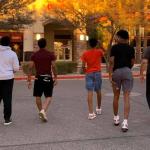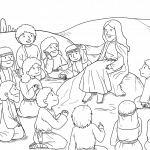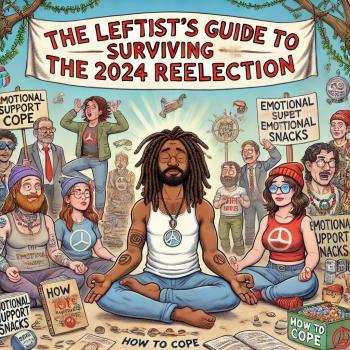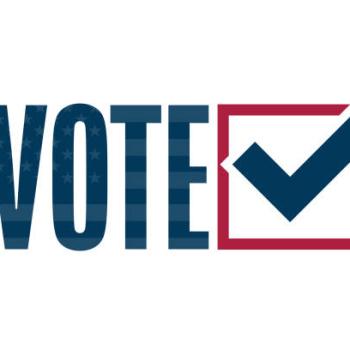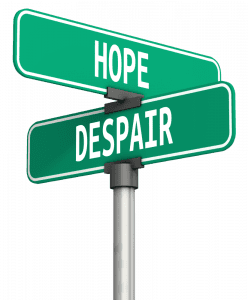 I’m rarely geographically lost. When I was a child, my Mom used to take me places she needed to go because I always knew where I was going. I had a really great sense of direction.
I’m rarely geographically lost. When I was a child, my Mom used to take me places she needed to go because I always knew where I was going. I had a really great sense of direction.
And I’m not lost now. However I am at an unfamiliar place emotionally and spiritually.
I’m at the intersection of despair and hope.
Despair is a familiar place if you’re black in America. When you grow up and watch the economic lifeblood being sucked out of your community. When you’re told — as a child in school — that you are best suited for menial work. When you watch as drugs rush in to and decimate your neighborhood.
Despair, unlike hypertension, is not a silent killer. Before despair kills, it produces some violent symptoms. We see this manifested in criminal activity — both nonviolent and violent.
Despair is also a career-killer. Even if you attain a modicum of success, you are always believing you are not worthy of where you are or what you’ve achieved. This kind of thinking will sabotage both the best of efforts and the greatest abilities.
I’m a black man in America. So despair is a constant companion. But I also have hope. Hope is a new venue.
For the first time in my nearly fifty-eight years walking the earth, I am seeing rays of hope glimmering through the clouds of despair — at least concerning race relations in this country.
White people standing in solidarity with black folks.
For most of my adult life, whenever a “civil rights” (translated, human rights for black folks) issue was raised, I was always told that this was a detriment to society. It didn’t matter whether we protested silently or violently, the ending statement was tantamount to “don’t protest.”
But now I am experiencing white people putting their social, emotional, spiritual, and natural capital at risk to bring about change.
And I think this is the change the late, great Sam Cooke sang about!
For the first time in my lifetime, real police reform is being discussed. Civil rights measures are in the legislative forefront at all levels of government. Corporations are rethinking their diversity policies.
Four years ago, NFL quarterback Colin Kaepernick, knelt during the national anthem to protest against police brutality. He was considered by many to be traitor and disrespectful to veterans and to our national ensign. Never mind that this means of protest was suggested by a former special forces member. Never mind that he did it silently and peacefully. For his efforts, he was effectively drummed out of the league.
Now, suddenly, people get it. They see clearly that this was never about veterans or the flag. They see that police brutality against blacks is a real problem. Even more importantly, many Americans are seeing that police brutality is but a symptom of America’s glaring birth defect.
Racism.
For crying out loud, even NASCAR gets it. One of the last bastions of open bigotry has now publicly ousted one of it’s most venerated symbols: the confederate flag. Matter of fact, they have openly supported a car (the Richard Petty team, no less) with a black driver (Bubba Wallace) with “Black Lives Matters” livery! Matter of fact, NASCAR has been more supportive of Wallace in the last four weeks than the NFL has been of Kaepernick over the last four years!
For the first time in my lifetime, there is meaningful dialogue exchanged about the removal of monuments of the lost cause of the confederacy being removed. Having spent most of my adult life in Virginia, I cannot tell you how overjoyed I am that these conversations are even taking place. I am elated even more so that many of these statues and icons have already been taken down.
Irrespective of what you think of what the war between the states was actually about, had the confederacy won, slavery would likely still be “a thing.”
Hundreds of white brothers and sisters have reached out to me via email and social media inboxes pledging their support to end racism and police brutality in America. Many are posting relentlessly on social media to end these forms of oppression. Many are calling and writing elected officials. This is absolutely life-giving to me.
But this stance has come at a cost. Many of my white brothers and sisters have lost relationships with loved ones. Many have lost friendships. Many have lost business. And I cannot tell you how much that grieves me. That everyone should have equal rights and equal protection by law enforcement should not be debatable in 2020. This should be something that every American agrees on.
I say all this to say that I have hope. I have hope like I’ve never had. And to everyone who has taken up this cause I implore you to be steadfast and conserve your strength — this is a marathon, not a sprint. We are working to undo over four-hundred years of systemic, orchestrated oppression and it will not happen overnight. I want you to know you are on the right side of history and, together, we will prevail.
Those of us joining together in this challenge are truly operating in the love of Christ. We are demonstrating for the world what it looks like to truly be our brothers’ (and sisters’) keepers. For the first time in this country’s history, we are living up to the Constitutional creed that all men are created equal. Love is truly being manifest right now!
I’m at the intersection of despair and hope. But I’ve confidently signaled in the direction of, and am resolutely turning my wheel toward hope.
Derrick Day is a former pastor and an author and speaker. He is the author of “Deconstructing Religion.” He is also one of the co-hosts of “The Heretic Happy Hour Podcast” and the host of the Love|Forward Podcast.


